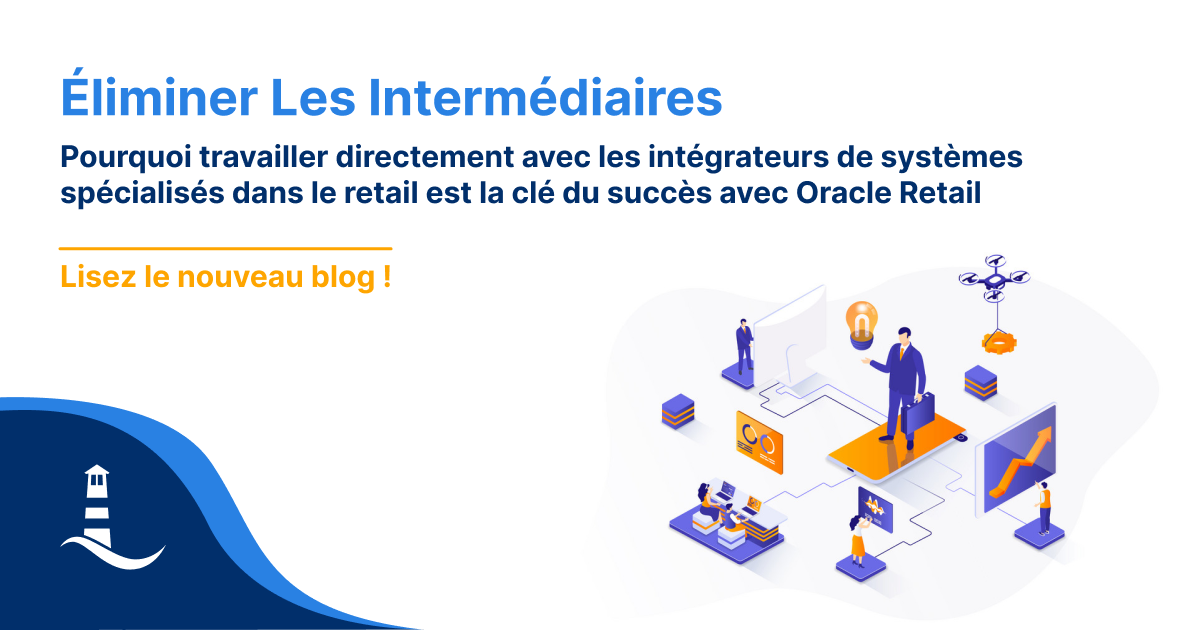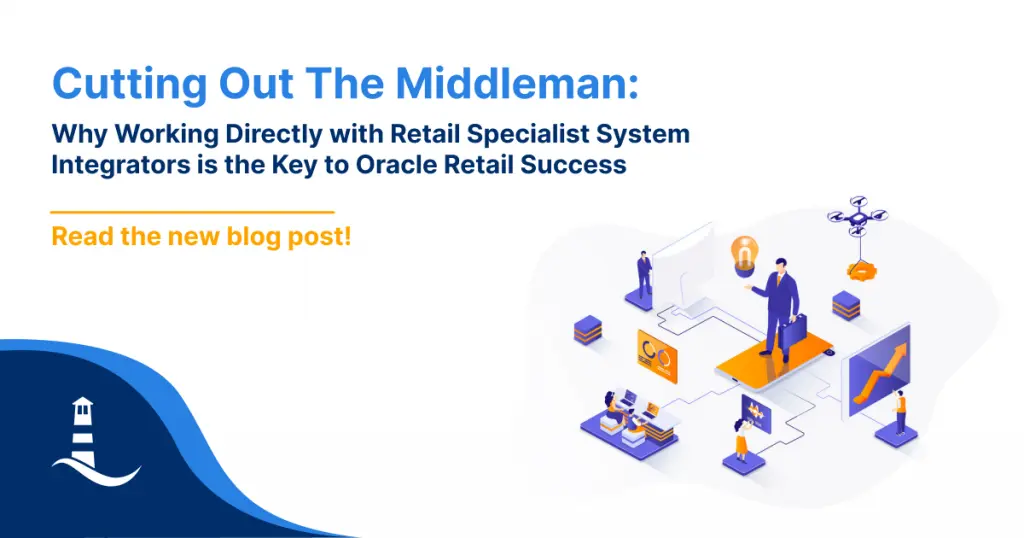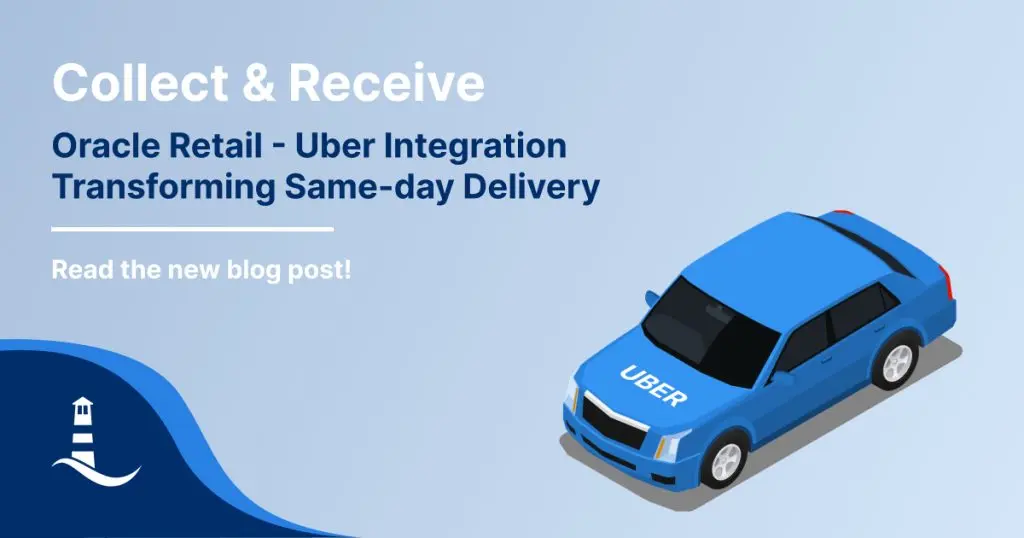Introduction
Based on the recent trends of the retail industry, it has become increasingly important for retailers to provide flexible and reliable solutions to their customers and to find innovative ways to increase satisfaction with the services provided. The Oracle Retail Order Broker Cloud service does not only offer a software solution that enables omnichannel transaction capabilities in order to increase convenience for consumers regardless of their preferred way of shopping but also allows retailers to optimize their day-to-day supply chain operation and inventory distribution.
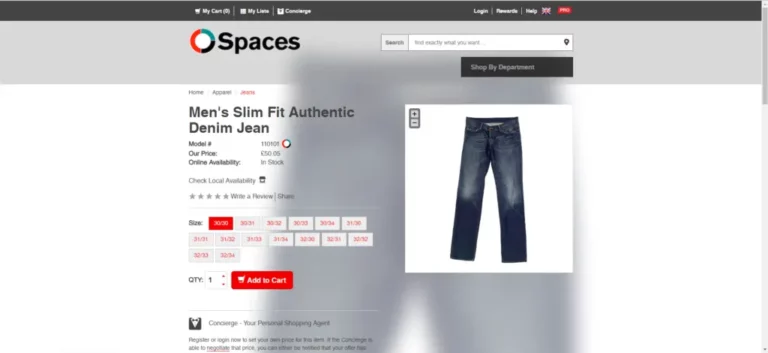
Example product as seen in the storefront
In this white paper, the various features and benefits of using the Oracle Retail Order Broker Cloud service will be introduced as well as a brief demonstration of the capabilities of the module will be described through a specific omnichannel scenario. The aim of presenting the in-store collection case is to provide an understanding of the possible impacts and improvement having the Order Broker Cloud Service integrated into a retailers’ ecosystem.
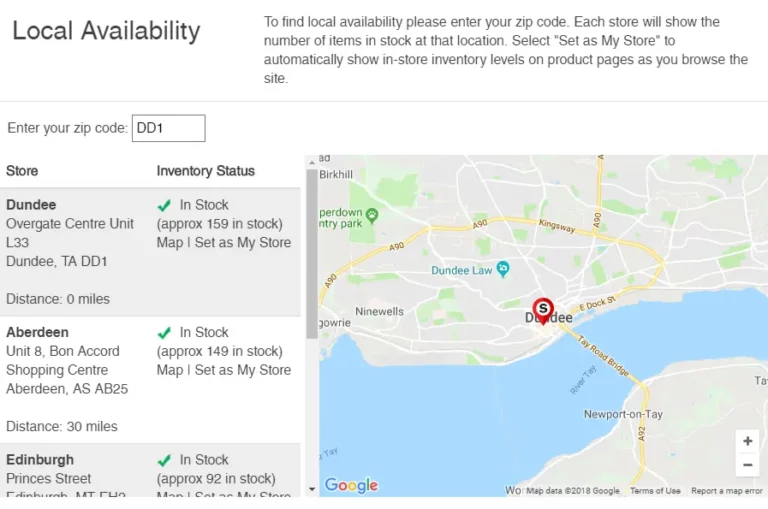
Checking item availability in the storefront
Features and Benefits
Oracle Retail Order Broker Cloud service provides a powerful tool for retailers to increase the number of successful transactions captured by their available channels. The ultimate goal is to efficiently process transactions that would otherwise be lost due to merchandise unavailability or out-of-sync information. The module ensures that the users are able to access real-time inventory information across all locations within the enterprise, at the same time it contributes towards an effective way for processing captured sales as quickly and inexpensively as possible.
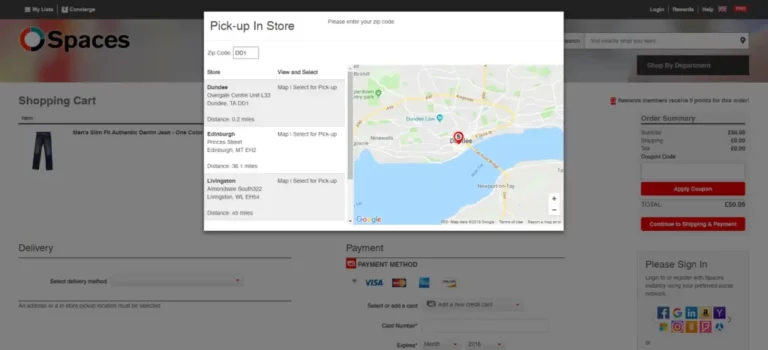
Delivery selection screen
Structure of a typical omnichannel enterprise:
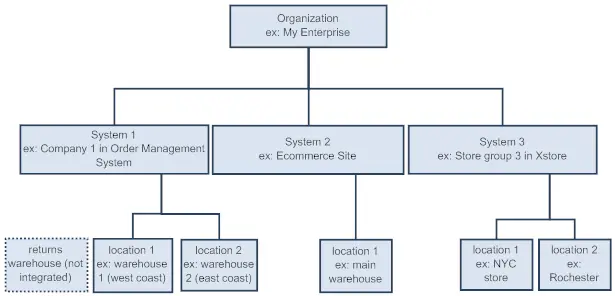
Source: https://docs.oracle.com/cd/E68433_01/orob/pdf/160/locate_help/index.htm
From the retailer’s point of view, apart from enabling omnichannel fulfilment of orders, one of the biggest benefits of using Oracle Retail Order Broker Cloud Service is that the module assists the retailer in decision-making regarding the optimal source of inventory and tracks the movement of the inventory among the supply chain. Having an optimal fulfilment proposed by the module, retailers are able to reduce inventory carrying and shipping costs, as well as they are capable of eliminating manual send sale and inter-store transfers that would be required otherwise.
Related to these functions, Oracle Retail Order Broker Service has two extensions – the Supplier Direct Fulfillment extension allows retailers to provide a web-based vendor portal to share purchase orders and shipping information for drop shipment fulfillments with suppliers, while the Store Connect extension enables store associates to process and fulfill omnichannel orders.
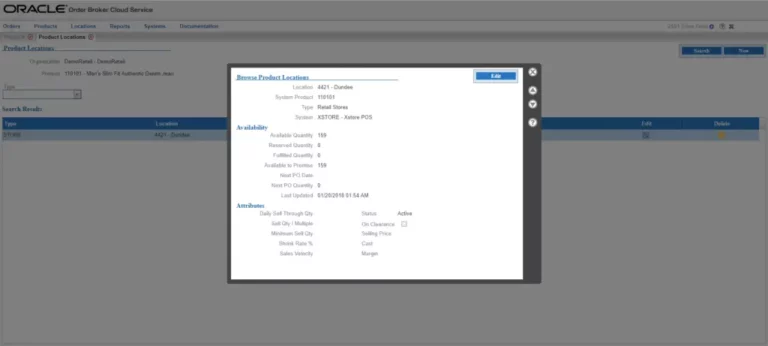
Product location screen in QBCS
Main Menu of the Order Broker Cloud Service:
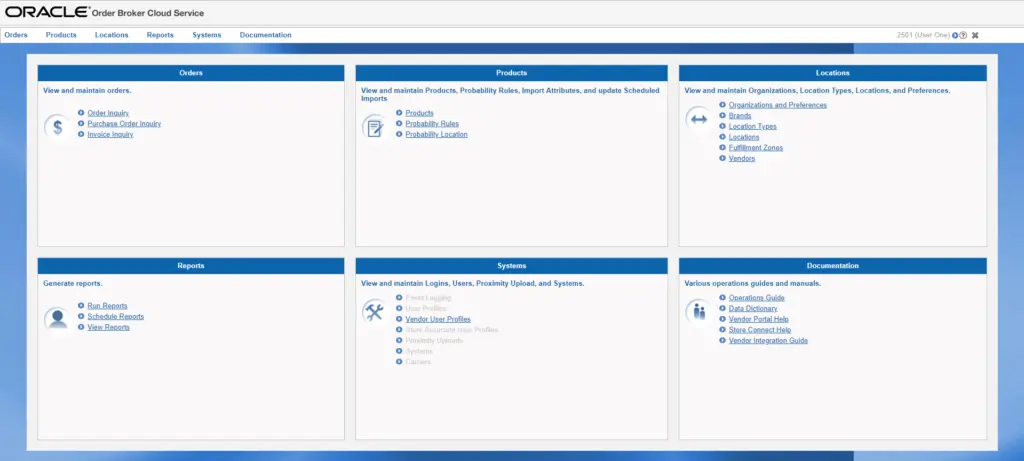
The benefits are numerous for the customers as well – the increasing demand for flexible solutions and the efforts to improve customer satisfaction requires that retailers provide alternative ways for hassle-free shopping and maximize their customers’ convenience for a better overall shopping experience. Retailers are able to leverage the real-time inventory information provided by the module and the can ensure that the orders would get completed through the various cross-channel fulfillment methods based on customers, stores, prices and merchandising decisions. Order shopping rules identifying the fulfilling locations are configurable and can be based on various criteria such as highest inventory levels or closest store.
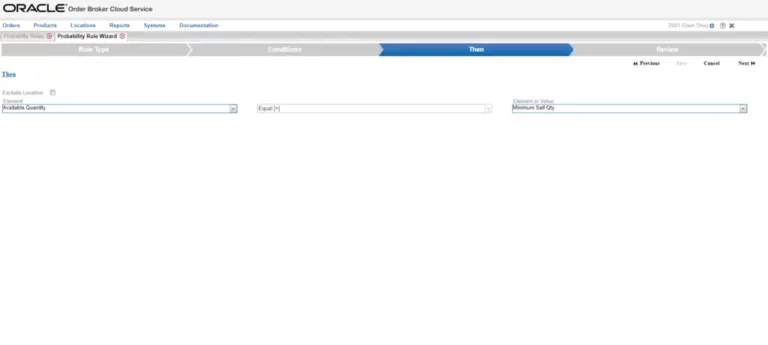
Probability Rule Wizard in OBCS
If needed, the module is able to automatically select the best location to fulfill orders based on pre-defined criteria in its Routing Engine, which holds advanced business rule for selecting ideal locations to fulfill each eligible order. It is also possible to track inventory disbursement to ensure appropriate stock levels in each location based on previously collected statistical data. The Routing Engine would either automatically calculate optimal source for the fulfilment based on the pre-defined business rules or provides a list of possible locations for fulfillment to be evaluated by users. By having a list of eligible locations, the customer is able to select a store for collecting an order form and the information would be then shared with the whole enterprise, while the responsible location gets notified that there are orders requiring attention.
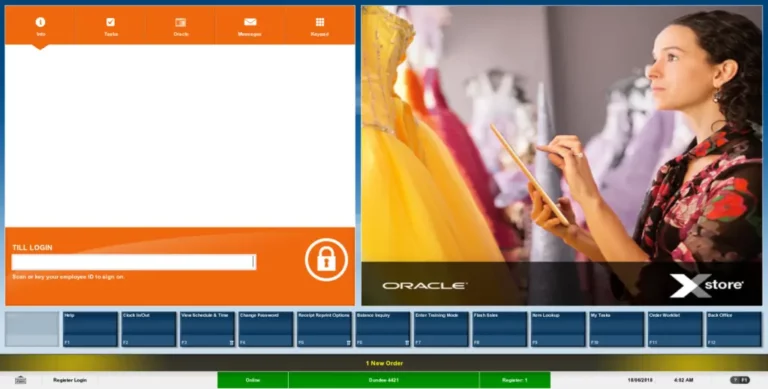
New order message on the Oracle Xstore main menu
Location Selection Diagram:
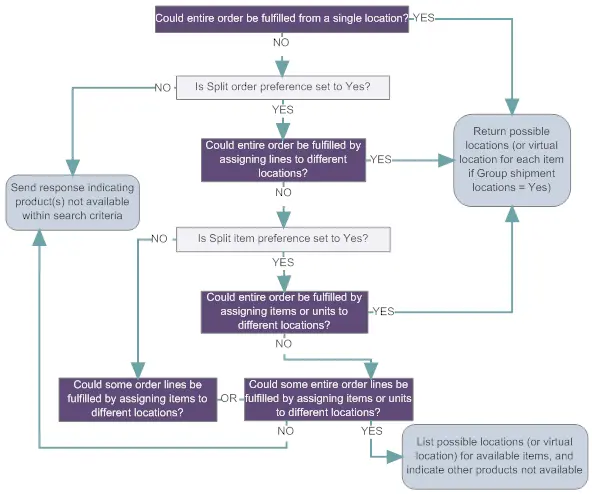
Source: https://docs.oracle.com/cd/E68433_01/orob/pdf/160/locate_help/index.htm
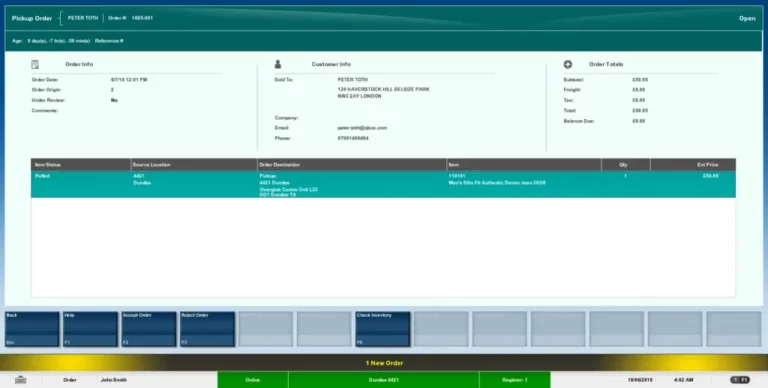
Order details in the Oracle Xstore POS module
Key Takeaway Points
- Order Broker Cloud Service enables real-time inventory visibility across the whole enterprise
- Various order types are supported such as delivery, pickup, retail pickup, ship-to-store, ship-to-pickup
- The module contributes toward an optimized daily supply chain operation and inventory distribution
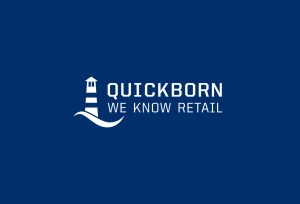
About Quickborn Consulting
Quickborn Consulting is an Oracle Gold Level partner company, providing business consulting, IT systems integration, solutions development and support services for the global retail industry. Quickborn supports retailers on their business and IT transformation programs that improve performance and increase competitive efficiency. Quickborn Consulting has a local presence in USA, France, Germany, Ireland, Hungary, Tunisia and India, and is present globally through its international network. For more information contact us here.
About Oracle Retail
Oracle provides retailers with a complete, open, and integrated suite of best-of-breed business applications, cloud services, and hardware that are engineered to work together and empower commerce. Leading fashion, grocery, and specialty retailers use Oracle solutions to anticipate market changes, simplify operations and inspire authentic brand interactions. For more information, visit our website at www.oracle.com/retail.
About Oracle
Oracle offers a comprehensive and fully integrated stack of cloud applications and platform services. For more information about Oracle (NYSE: ORCL), visit www.oracle.com.
Trademarks
Oracle and Java are registered trademarks of Oracle and/or its affiliates. Other names may be trademarks of their respective owners.



